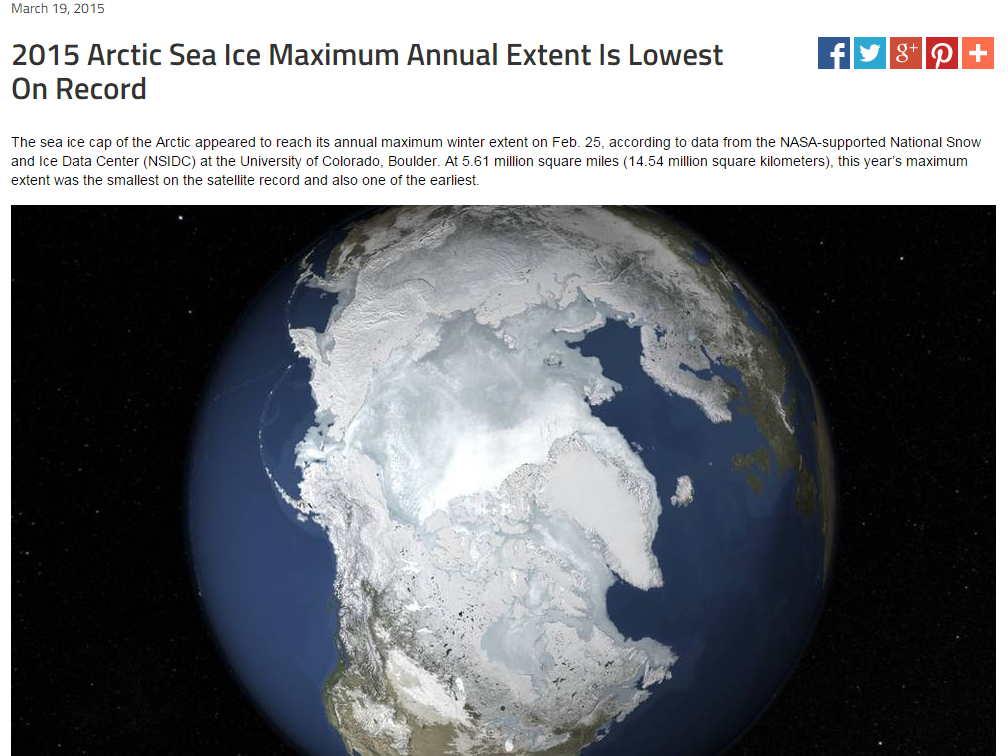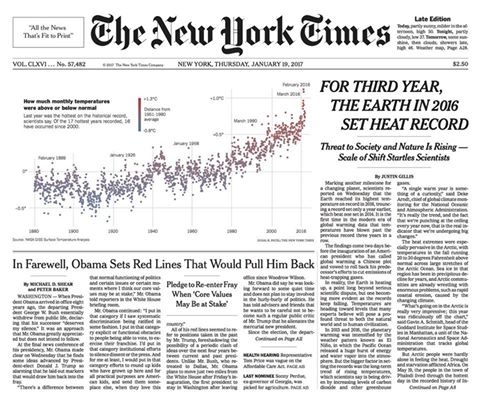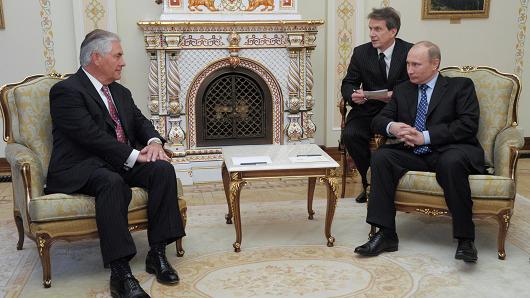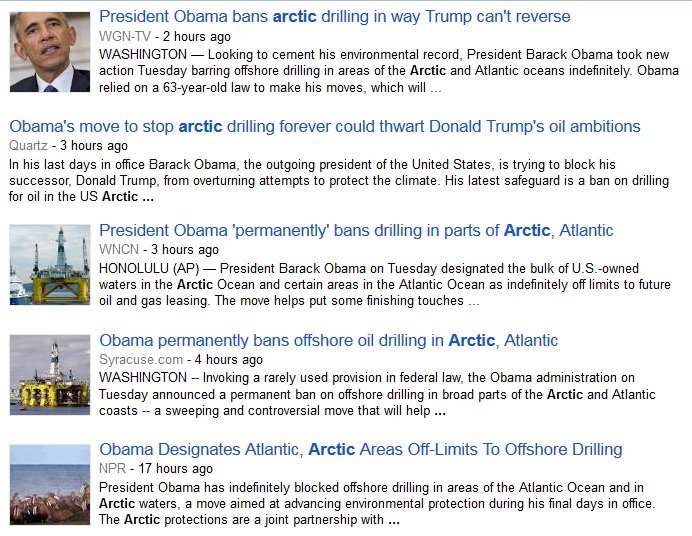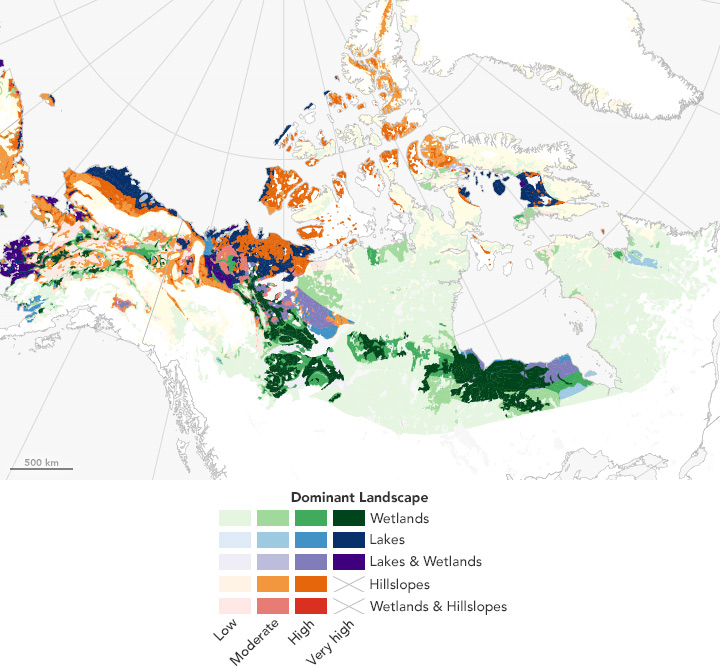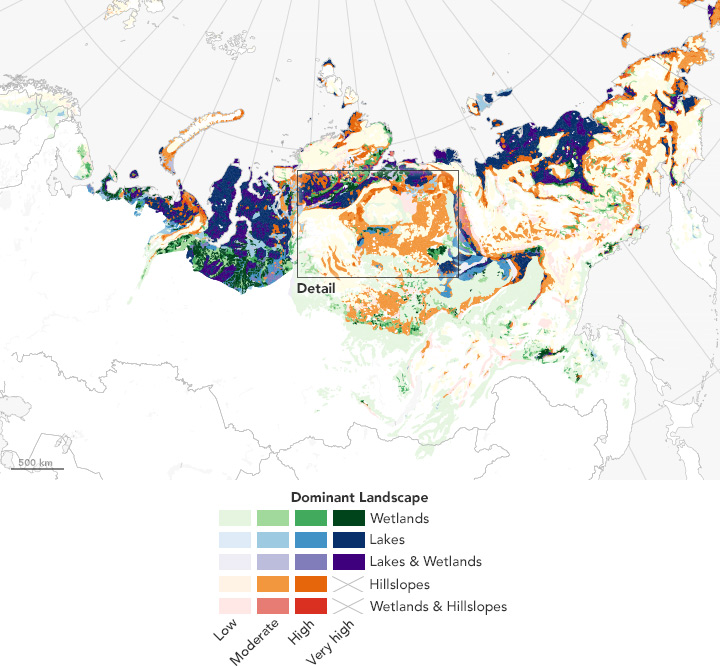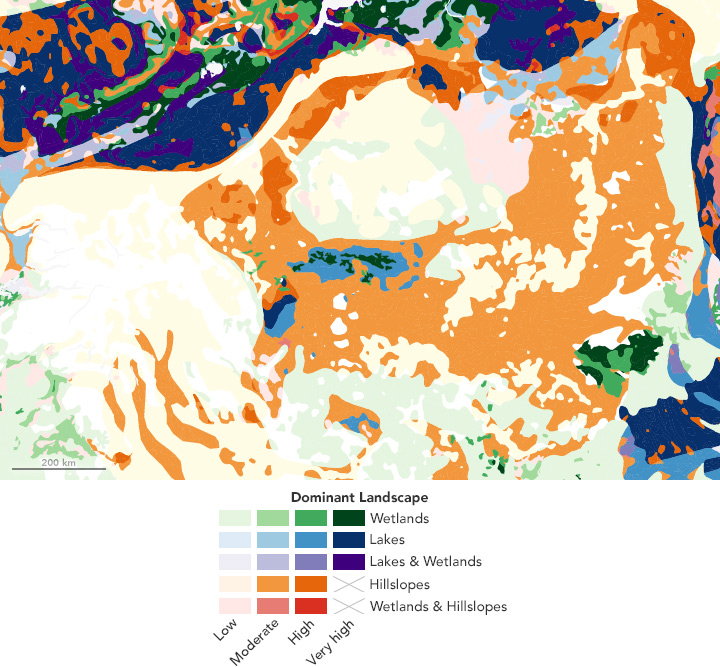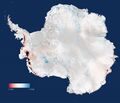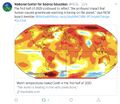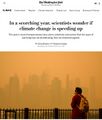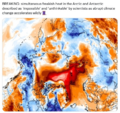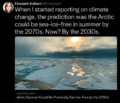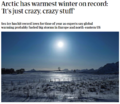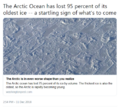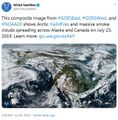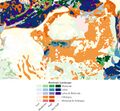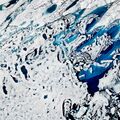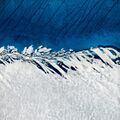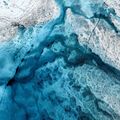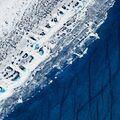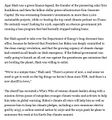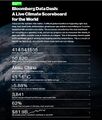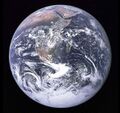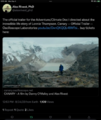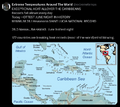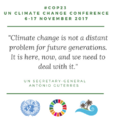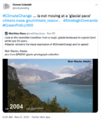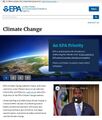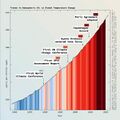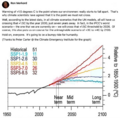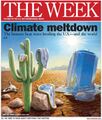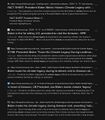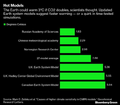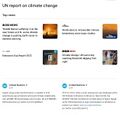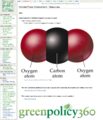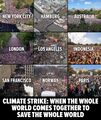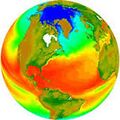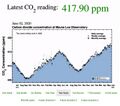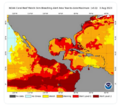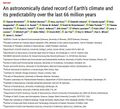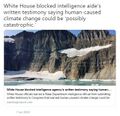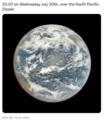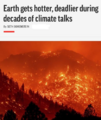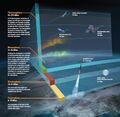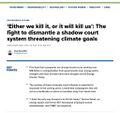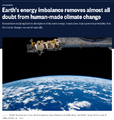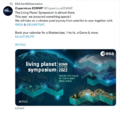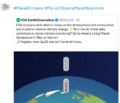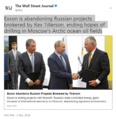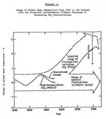Category:Arctic: Difference between revisions
Siterunner (talk | contribs) No edit summary |
Siterunner (talk | contribs) No edit summary |
||
| Line 7: | Line 7: | ||
''First, the facts. January sea ice area has never been so small. In November, the coverage fell short of average by an area the size of the eastern half of the United States. Northeast Greenland had its warmest February day ever (by almost four degrees). The current heat wave brought temperatures near the North Pole to 50 degrees above average...'' | ''First, the facts. January sea ice area has never been so small. In November, the coverage fell short of average by an area the size of the eastern half of the United States. Northeast Greenland had its warmest February day ever (by almost four degrees). The current heat wave brought temperatures near the North Pole to 50 degrees above average...'' | ||
''“We’re still trying to figure out what is happening here,” Mark Serreze, a senior research scientist with the Colorado-based [http://nsidc.org/arcticseaicenews/ Snow and Ice Data Center].'' | ''“We’re still trying to figure out what is happening here,” Mark Serreze, a senior research scientist with the Colorado-based [http://nsidc.org/arcticseaicenews/ Snow and Ice Data Center that compiles and reports the history of Arctic ice conditions].'' | ||
''Everyone agrees that [https://twitter.com/afreedma/status/829475858498912256 "something is very, very wrong with the Arctic climate"]...'' | ''Everyone agrees that [https://twitter.com/afreedma/status/829475858498912256 "something is very, very wrong with the Arctic climate"]...'' | ||
''“The ridiculously warm temperatures in the Arctic during October and November this year are off the charts over our 68 years of measurements,” Jennifer Francis, a climate scientist at Rutgers University | ''“The ridiculously warm temperatures in the Arctic during October and November this year are off the charts over our 68 years of measurements,” Jennifer Francis, a climate scientist at Rutgers University...'' | ||
Revision as of 21:12, 11 February 2017
Once-in-a-decade heatwave is melting the Arctic -- Why?
FEBRUARY 11, 2017 — Records are shattering left and right across the Arctic, much like the ever-dwindling sea ice that once covered the entire Arctic Ocean.
First, the facts. January sea ice area has never been so small. In November, the coverage fell short of average by an area the size of the eastern half of the United States. Northeast Greenland had its warmest February day ever (by almost four degrees). The current heat wave brought temperatures near the North Pole to 50 degrees above average...
“We’re still trying to figure out what is happening here,” Mark Serreze, a senior research scientist with the Colorado-based Snow and Ice Data Center that compiles and reports the history of Arctic ice conditions.
Everyone agrees that "something is very, very wrong with the Arctic climate"...
“The ridiculously warm temperatures in the Arctic during October and November this year are off the charts over our 68 years of measurements,” Jennifer Francis, a climate scientist at Rutgers University...
Between 1980 and 2016 the amount of summer ice in cubic kilometers has decreased by an estimated 72 percent...
- January 19, 2017
Northern Routes Open as Ice Retreats
Exxon Mobil could tap huge Arctic assets if US - Russian relations thaw
Read More re: Energy Production in the Arctic
○ ○ ○ ○ ○ ○ ○ ○ ○
February 2017
Former Chief of ExxonMobil Testifies Before US Congress
- President-elect Donald Trump's nominee for secretary of state, Rex Tillerson, said he believes the risks of climate change "could be serious enough that action should be taken,” but he did not elaborate on what that action should be.
Tillerson testified that he formed his views “over about 20 years as an engineer and a scientist, understanding the evolution of the science.” Ultimately, he said, he concluded that increasing greenhouse-gas concentrations in the atmosphere are having an effect on the earth’s climate. But he added, “Our ability to predict that effect is very limited,” and precisely what actions nations should take “seems to be the largest area of debate existing in the public discourse.”
○
Geopolitics in the Arctic
- United States and Russia move to claim fossil fuel exploration and production rights
- Military and Economic interests present serious challenges
- Environmental exploitation and 'gas/oil' rush looms
A Final Presidential Decision Re: Arctic Oil/Gas
December 19, 2016 / President Barack Obama prepares to leave office and prepares to block the sale of new offshore drilling rights in most of the U.S. Arctic and parts of the Atlantic. The executive order that could indefinitely restrict oil production there, according to people familiar with the decision.
http://www.foxnews.com/politics/2016/11/18/obama-blocks-new-oil-gas-drilling-in-arctic-ocean.html
Arctic Sea Ice at Record Lows / December 2016
http://phys.org/news/2016-12-state-arcticlonger-seasons-thinning-sea.html
https://insideclimatenews.org/news/13122016/arctic-melting-climate-change-noaa-science
http://earthobservatory.nasa.gov/IOTD/view.php?id=89223
http://www.arctic.noaa.gov/Report-Card
- Not Good News, Arctic Sea Ice News
First Cruise Ship Crossing the Ice-Free Arctic Passage
- https://www.greenpolicy360.net/w/File:Crystal_Serenity_cruises_2016.png
- https://www.wired.com/2016/03/climate-change-opens-first-luxury-arctic-cruise-route/
- http://www.cruiseindustrynews.com/cruise-news/15687-serenity-departs-for-northwest-passage-trip.html
- http://www.cbc.ca/news/canada/north/crystal-serenity-cruise-ulukhaktok-1.3736984 Ulukhaktok
- http://www.ktva.com/shows/frontiers/episode-74-crystal-serenitys-historic-voyage-951/ Arrival (September 16, 2016) in New York City ...
- http://www.reuters.com/article/us-environment-shipping-arctic-idUSKCN12A14B
The beginning of cruise ships plying the formerly isolated, ice-bound region... prompting calls for a clamp-down to prevent Titanic-style accidents and the pollution of fragile eco-systems resulting from accidents -- and new gas/oil production.
Arctic nations begin to consider limiting the size of vessels and banning the use of heavy fuel oil in the region after first luxury cruise ship, Crystal Serenity, sailed through the Arctic from Alaska, across Canada's newly navigable Northwest Passage, to New York in the summer of 2016.
Next up, commercial shipping traffic, container ships ...
- http://container-news.com/arctic-ocean-shipping-routes-open-months/
Shipping industry report:
Sea-ice is in a committed, long-term decline as the polar north warms.
This year looks on course to be the second lowest in the satellite record. Researchers do not see this trend being reversed anytime soon.
“If we experience a 2-degree increase in global temperatures, we will get close to an Arctic that is effectively ice-free for part of the year; that’s less than a million sq km of ice cover,” said Reading University's Dr. Ed Hawkins.
“So, even if future emissions are consistent with the Paris agreement, it will of course mean shipping routes will be more open. Not every year, but more regularly than they are now.”
“Open water vessels won’t be hugging the Russian coast quite so much, and ice-strengthened ships will be going right over the pole,” he told BBC News.
Saving time
The incentives are clear: if vessels can transit the Arctic, they will shave many days off their journey times between the Pacific and North Atlantic ports, and save fuel.
In addition, by plotting a more central course, they can avoid the fees they would otherwise be charged for going through Siberian waters.
The team has been looking at how the opportunities might evolve in the decades ahead.
The group used five prominent climate computer models and essentially trained them to better reflect the distribution of Arctic sea-ice as seen in current observations.
They then ran those models forward through the century under different emissions scenarios, to gauge where and how frequently shipping routes would become navigable.
https://en.wikipedia.org/wiki/Northern_Sea_Route (Russia)
https://en.wikipedia.org/wiki/Northwest_Passage (Canada)
2015
- http://www.reuters.com/article/us-sanctions-russia-arctic-shipping-idUSKBN0KV17520150122
2014/2013
- http://www.reuters.com/article/us-climate-arctic-shipping-idUSBRE92718420130308
2012/2011
- https://www.theguardian.com/world/2011/jul/06/us-russia-political-tensions-arctic
- https://www.theguardian.com/environment/2011/oct/05/melting-arctic-ice-supertankers
Read More:
Arctic News -- http://www.arcticnow.com/section/arctic-news/
○
Geo-political Issues (@GreenPolicy's associated site, Strategic Demands)
·
Subcategories
This category has the following 4 subcategories, out of 4 total.
C
E
G
S
Pages in category "Arctic"
The following 44 pages are in this category, out of 44 total.
C
E
G
- Glasgow Climate Summit - Pledges, Promises, Declarations - What's Next Up
- Global Climate Action Summit
- Green Stories of the Day
- Green Stories of the Day - GreenPolicy360 Archive
- GreenPolicy360 Archive Highlights 2013
- GreenPolicy360 Archive Highlights 2014
- GreenPolicy360 Archive Highlights 2015
- GreenPolicy360 Archive Highlights 2016
- GreenPolicy360 Archive Highlights 2017
- GreenPolicy360 Archive Highlights 2018
- GreenPolicy360 Archive Highlights 2019
- GreenPolicy360 Archive Highlights 2020
- GreenPolicy360 Archive Highlights 2023
P
T
Media in category "Arctic"
The following 200 files are in this category, out of 470 total.
(previous page) (next page)- 2020 record temperatures.png 800 × 502; 358 KB
- 5 19 14 andrew antarcticaelevationchanges-640x547.jpg 640 × 547; 59 KB
- 7-20-2020 GreenPolicy360 RT No.2.jpg 591 × 510; 125 KB
- A Planet Citizen View.png 799 × 1,241; 1.64 MB
- A scorching year, what about the 360 warming data.jpg 600 × 706; 106 KB
- Acceptance on behalf of the United States of America.png 448 × 306; 62 KB
- Act now for a livable future.png 501 × 275; 272 KB
- Ag production and GHG emissions.jpg 680 × 510; 33 KB
- Against the Tide - Cover - by Cornelia Dean.jpg 308 × 475; 57 KB
- Air pollution moves globally.png 620 × 412; 256 KB
- Amazon fires burn across the rainforest.jpg 800 × 504; 76 KB
- Andrew Wheeler confirmed to head EPA.jpg 753 × 600; 85 KB
- Arctic - Antarctic - Breaking.png 639 × 600; 903 KB
- Arctic - Kolbert - 2023.png 553 × 476; 274 KB
- Arctic 2018, It's only the weather.png 631 × 547; 324 KB
- Arctic 30.1 C at 62.5 N.jpg 800 × 432; 80 KB
- Arctic annual average temp 1981-2010.jpg 800 × 534; 76 KB
- Arctic CAB sea ice monitor-Feb 2018 update (2013-2018).jpg 640 × 400; 28 KB
- Arctic heat in Russia-Siberia 2020.gif 784 × 408; 3.6 MB
- Arctic ice Sep 1984 - Sep 2016 vid.png 640 × 322; 308 KB
- Arctic ice trendline.jpg 448 × 252; 10 KB
- Arctic Ice-old ice being lost.png 538 × 480; 388 KB
- Arctic is in Crisis.png 800 × 432; 770 KB
- Arctic Melt - 1950-2020.png 640 × 349; 287 KB
- Arctic Sea Ice - Feb 25, 2018.png 506 × 674; 297 KB
- Arctic Sea Ice 2015.png 1,008 × 756; 542 KB
- Arctic Sea Ice Area graphic thru 2016.png 640 × 355; 382 KB
- Arctic Sea Ice Feb 2018 NASA.jpg 640 × 360; 65 KB
- Arctic sea ice National Geo.jpg 506 × 380; 87 KB
- Arctic sea ice volume 1979-2018.png 640 × 453; 173 KB
- Arctic sea ice watch 25 yrs of ice cover change.png 697 × 386; 314 KB
- Arctic sea ice-April 2019.jpg 800 × 533; 78 KB
- Arctic Siberia Heatwave - Again - June 2021.jpg 640 × 360; 83 KB
- Arctic wildfires-July 2019-NOAA.jpg 640 × 650; 136 KB
- Arctic wildfires-July 2019.jpg 656 × 475; 80 KB
- Arctic-100 yrs difference.jpg 640 × 883; 59 KB
- Arctic-March30,2019.jpg 797 × 600; 126 KB
- Arctic-siberia mdl 1990-2010.jpg 720 × 667; 216 KB
- Arctic-Siberia-6-20-2020.jpg 478 × 644; 148 KB
- Arctic-swipa-spm.pdf ; 4.58 MB
- Arctic1 by Timo Lieber 800x480.jpg 800 × 480; 158 KB
- Arctic2 by Timo Lieber 768x768.jpg 768 × 768; 241 KB
- Arctic3 by Timo Lieber 768x768.jpg 768 × 768; 175 KB
- Arctic4 by Timo Lieber 768x768.jpg 768 × 768; 257 KB
- Arctic6 by Timo Lieber 768x768.jpg 768 × 768; 256 KB
- Arctic7 by Timo Lieber 768x768.jpg 768 × 768; 183 KB
- Arctic8 by Timo Lieber 768x768.jpg 768 × 768; 324 KB
- Atmosphere Science.jpg 800 × 600; 45 KB
- Atmospheric Experiment of Humanity.jpg 519 × 574; 201 KB
- Austin Texas is connected to the Arctic - February 2021.jpg 559 × 619; 163 KB
- Banking - finance - climate - Mann-1.jpg 452 × 640; 162 KB
- Banking - finance - climate - Mann-2.jpg 452 × 640; 164 KB
- Battle for Democracy.jpg 640 × 123; 24 KB
- Biden introduces leadership team - Nov 24 2020.jpg 800 × 644; 173 KB
- Biden selects Kerry as special climate envoy.jpg 592 × 505; 87 KB
- Biden's assembled an all-star climate team 4-21-2021.jpg 682 × 732; 309 KB
- Biden-Sanders Unity Task Force on Climate.jpg 701 × 780; 139 KB
- Big Oil Rocked by News May 27 2021.jpg 639 × 600; 84 KB
- Bill Nelson on Global Temp Rise and Climate Change.png 640 × 353; 100 KB
- Bill Nye The Planet's on Fire.jpg 800 × 675; 106 KB
- Bloomberg Carbon Clock 10-26-2021 8-47-05 AM EST.png 800 × 195; 356 KB
- Bloomberg Live Climate Data Dashboard.jpg 640 × 756; 156 KB
- Blue Marble photo taken by the crew of Apollo 17 (1972).jpg 642 × 605; 129 KB
- Breakpoint - Reckoning with America's Environmental Crisis.jpg 329 × 500; 49 KB
- Bridenstine talks.png 1,485 × 911; 223 KB
- Bucky Trimtab.jpg 348 × 336; 88 KB
- Burst of climate denial as Trump presidency ends.jpg 632 × 604; 92 KB
- Canary - 1.jpg 448 × 901; 144 KB
- Canary - 2.png 446 × 531; 264 KB
- Car heating and cooling.png 465 × 635; 261 KB
- Carbon Brief - Greenhouse gas levels 2021.png 640 × 436; 292 KB
- Caribbean Sea hot - June night 2024.png 676 × 600; 386 KB
- CFSV2 world temp July 3, 2023.png 600 × 800; 513 KB
- CH4 graph - 1980-2020.JPG 640 × 446; 22 KB
- Changes in carbon dioxide per 1000 years - via Climate Central.jpg 682 × 424; 34 KB
- Citizens Climate Lobby - Save Our Future Act 2021.jpg 518 × 262; 77 KB
- Climate Action 25th conf in Madrid.jpg 680 × 510; 22 KB
- Climate activist - Steven Schmidt - 1978 on.png 600 × 480; 174 KB
- Climate Books - 2020.jpg 800 × 450; 69 KB
- Climate Change Conf Nov 6-17.png 464 × 488; 107 KB
- Climate Change COP27 - Nov 11 2022 US Representatives.jpg 712 × 444; 54 KB
- Climate Change COP27 - Nov 11 Kathy Castor.jpg 712 × 710; 77 KB
- Climate change is not moving at a glacial pace.png 448 × 532; 217 KB
- Climate change unique threat to national security.png 800 × 42; 20 KB
- Climate Change US EPA.jpg 600 × 703; 95 KB
- Climate Conferences 1979-2020.jpg 768 × 768; 121 KB
- Climate Crisis - Emily Atkin Heated No. 1.jpg 537 × 453; 61 KB
- Climate Crisis and the Global Green New Deal.jpg 293 × 418; 33 KB
- Climate debate.jpg 493 × 580; 129 KB
- Climate Desk.jpg 390 × 226; 21 KB
- Climate Emergency Institute - Oct 2022.png 610 × 600; 274 KB
- Climate Emergency Institute -- 2021.jpg 800 × 450; 55 KB
- Climate emergency.jpg 800 × 450; 69 KB
- Climate Headline News around the World - July 2023.jpg 600 × 704; 151 KB
- Climate Legacy of Biden.jpg 600 × 687; 265 KB
- Climate Models.png 639 × 558; 123 KB
- Climate News - Oct 28 2022.jpg 626 × 600; 88 KB
- Climate News - United Nations Report - Feb 2022.png 768 × 878; 539 KB
- Climate News Dec 4 2023 in Dubai.png 800 × 1,037; 649 KB
- Climate Plans Enforcement - Resources - GreenPolicy.png 768 × 897; 686 KB
- Climate Science Special Report - US - November 2017.jpg 800 × 445; 122 KB
- Climate strike - Week 171.png 739 × 600; 834 KB
- Climate Strike Around the World - Sep20,2019.jpg 700 × 830; 119 KB
- Climate Summit - Leonardo DiCaprio.png 600 × 663; 521 KB
- Climate Summit live updates - Nov 2 2021.png 751 × 600; 420 KB
- Climate Summit planned-1.jpg 800 × 301; 53 KB
- Climate Summit planned-2.jpg 800 × 187; 31 KB
- Climate Summit planned-3.jpg 800 × 278; 44 KB
- Climate Summit planned-4.jpg 800 × 241; 41 KB
- Climate usa 60 years on.jpg 800 × 480; 34 KB
- ClimateNews 360.jpg 172 × 172; 9 KB
- ClimateNewsFlorida.jpg 448 × 191; 36 KB
- CO2 at Mauna Loa data - June 02, 2020 - 417.90 ppm.jpg 640 × 566; 66 KB
- CO2 cumulative emissions 1850 - 2021 - countries.jpg 640 × 462; 211 KB
- CO2 Emissions per Capita by Country 1960-2014.png 800 × 451; 424 KB
- CO2 emissions-around-the-world.png 800 × 595; 123 KB
- CO2 global pathways via IPCC AR6 - how will we respond.jpg 800 × 450; 57 KB
- CO2 higher than in the past 5 million yrs.jpg 514 × 285; 62 KB
- COP26 Climate Summit concludes.jpg 600 × 800; 160 KB
- COP26 concludes - 2.png 648 × 467; 177 KB
- COP26 concludes - 3.png 648 × 713; 416 KB
- COP26 concludes.png 648 × 528; 329 KB
- COP26 in GLASGOW - 31 OCT-12 NOV 2021.jpg 800 × 264; 51 KB
- COP27 'opening speech'.png 640 × 460; 160 KB
- COP28 News - Dec 13 2023.png 800 × 898; 410 KB
- Copernicus EU logo.jpg 400 × 400; 41 KB
- CopernicusEU - Sentinel5P Atmosphere Monitoring Mission - 2.jpg 795 × 1,477; 654 KB
- CopernicusEU - Sentinel5P Atmosphere Monitoring Mission.png 583 × 465; 222 KB
- Coral bleaching - August 2023.png 488 × 430; 261 KB
- Coral bleaching - NOAA - August 2023.png 488 × 338; 201 KB
- Covering Climate Now.jpg 493 × 498; 67 KB
- Cradle of Civilization - and climate change.jpg 640 × 360; 70 KB
- Crystal Serenity cruises 2016.png 407 × 754; 274 KB
- Cumulative CO2 Emissions by Country Since 1850.png 800 × 445; 445 KB
- Dated record of Earths climate - Science Report Sept 10 2020.jpg 735 × 669; 192 KB
- Defend Our Future 6-1-2020.jpg 585 × 458; 103 KB
- Democratic Climate Plan-Introduced June 2020.jpg 528 × 561; 117 KB
- Democratic National Convention-62 climate speakers.jpg 443 × 407; 57 KB
- Democratic Party Climate Bill - Aug 2022.png 640 × 269; 70 KB
- Democratic Party pres candidates debate in Miami-June 2019.jpg 800 × 534; 124 KB
- Democratic presidential candidates on the Green New Deal.jpg 800 × 359; 57 KB
- Denying human-caused climate change.jpg 639 × 620; 129 KB
- DSCOVR EPIC - July 20 2022.png 532 × 612; 315 KB
- Earth AI - Feb 2022.png 482 × 480; 192 KB
- Earth Day 2021 - Climate Summit News-1.jpg 491 × 270; 127 KB
- Earth Day 2022 - Act up.png 457 × 370; 155 KB
- Earth Day 50 years on.jpg 480 × 548; 107 KB
- Earth Emoji.png 50 × 50; 2 KB
- Earth Information Center - 2022 Graphic NASA.png 800 × 981; 868 KB
- Earth Information Center from NASA.jpg 800 × 577; 94 KB
- Earth Observing System - fleet of satellites.png 740 × 576; 557 KB
- Earth Right Now science.jpg 197 × 49; 3 KB
- Earth Science from Space-Monitoring Ice Melt.jpg 657 × 373; 60 KB
- Earth Science Research from Space.png 800 × 256; 208 KB
- Earth Summit 1992-s.png 336 × 418; 283 KB
- Earth Summit 1992.jpg 600 × 746; 171 KB
- Earth System Observatory-1.jpg 580 × 833; 129 KB
- Earth System Observatory-2.jpg 580 × 831; 69 KB
- Earth trapping unprecedented amount of heat - NASA.jpg 468 × 373; 56 KB
- Earth Viewing from the International Space Station.jpg 496 × 307; 45 KB
- Earth-upper-atmosphere-NASA.jpg 800 × 781; 327 KB
- EarthDecadel Priorities-2018.jpg 779 × 529; 85 KB
- EarthRightNow Earth Science satellite fleet circa 2015.jpg 1,500 × 1,125; 0 bytes
- Earths rotation as we roll thru space.jpg 800 × 529; 69 KB
- EarthScience Missions via the EOS - 2022.png 800 × 219; 139 KB
- Economist.com global capital snapshot as of July 2020.jpg 800 × 477; 119 KB
- Elon Musk quote - gas externality price.png 680 × 320; 199 KB
- Emergency brake.jpg 478 × 271; 21 KB
- Emissions graph - gleick tw 2018.jpg 640 × 364; 37 KB
- Energy Charter Treaty.jpg 512 × 480; 74 KB
- Energy Imbalance, Climate Change - Aug 1 2021.png 640 × 672; 394 KB
- Environment and Security.jpg 289 × 34; 16 KB
- Environmental laws in US - Supreme Court votes soon.png 800 × 414; 334 KB
- EPA website a 'ghost page' now.png 667 × 233; 45 KB
- ESA Living Planet Symposium - Announcement.png 637 × 600; 508 KB
- ESA Living Planet Symposium - May 2022.png 700 × 600; 258 KB
- ESG Fight - Feb 2023.png 396 × 194; 88 KB
- EU agrees to cut emissions 55 percent by 2030.jpg 800 × 558; 96 KB
- EU unveils new climate change policy - July 14 2021 - 1.jpg 800 × 234; 33 KB
- EU unveils new climate change policy - July 14 2021 - 2.jpg 800 × 552; 86 KB
- EU unveils new climate change policy - July 14 2021 - 3.jpg 800 × 549; 89 KB
- EU unveils new climate change policy - July 14 2021 - 4.jpg 800 × 550; 92 KB
- EU unveils new climate change policy - July 14 2021 - 5.jpg 800 × 548; 88 KB
- EU unveils new climate change policy - July 14 2021 - 6.jpg 800 × 557; 89 KB
- EU unveils new climate change policy - July 14 2021 - 7.jpg 800 × 553; 92 KB
- EU unveils new climate change policy - July 14 2021 - 8.jpg 800 × 589; 91 KB
- Extreme temperature-world-May 2024.jpg 640 × 427; 105 KB
- Exxon-Russia abandon oil drilling in Arctic-March 1, 2018.png 600 × 618; 264 KB
- ExxonMobil CO2 climatic response study - Graphic 1 - 1982.png 537 × 680; 150 KB
- ExxonMobil CO2 climatic response study - Graphic 2 - 1982.png 537 × 605; 112 KB
- Floating floating over the ocean seas.jpg 800 × 533; 74 KB
- Flooding in South Florida.png 640 × 742; 293 KB
- Foley on March29,2017.png 487 × 135; 0 bytes
- From 1968 to 1992 -- and the Journey continues....png 572 × 851; 320 KB
